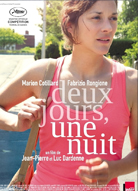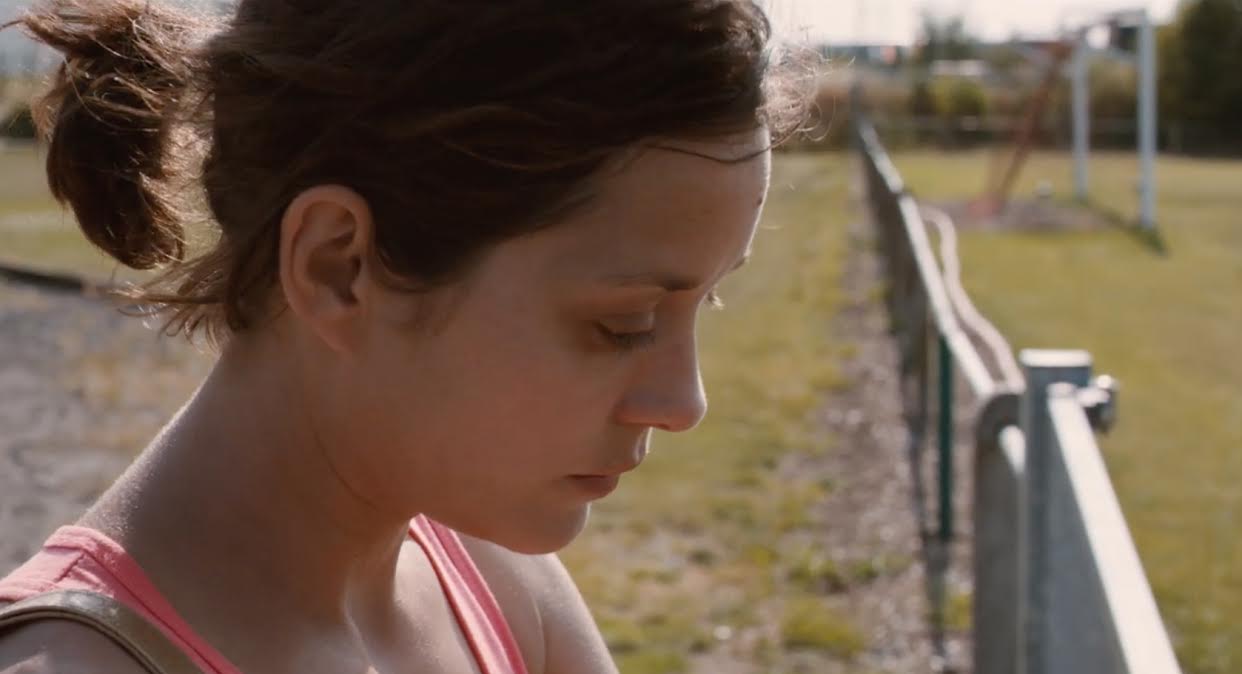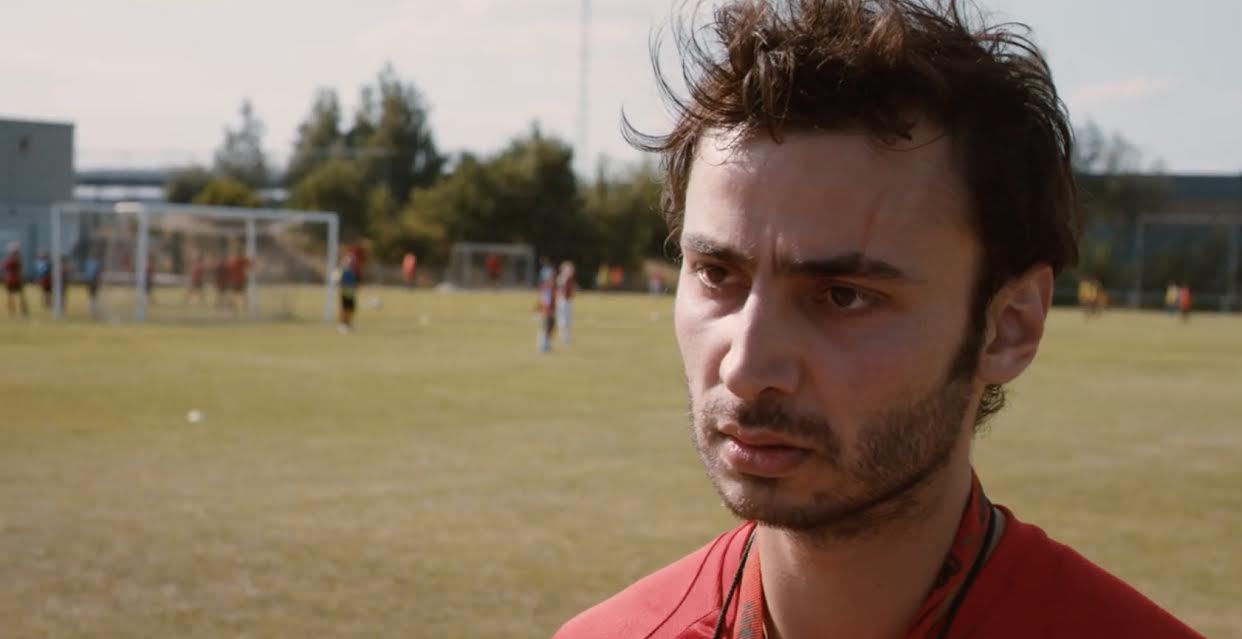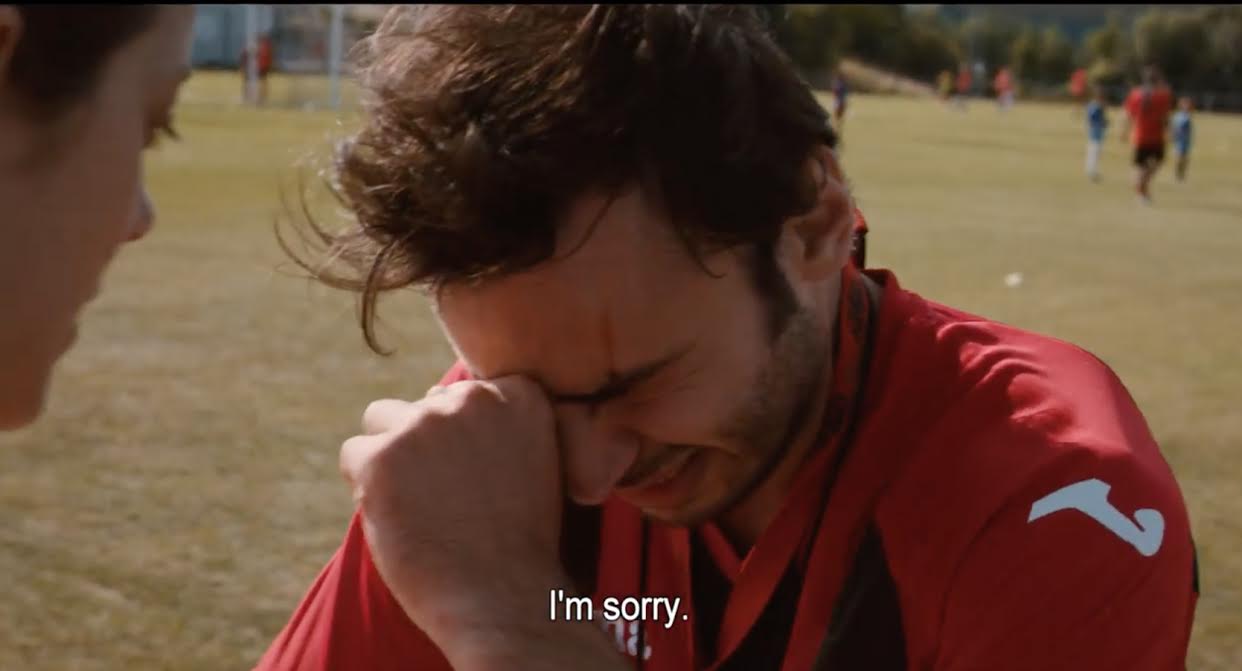
I become invested in the struggles of Sandra in Two Days, One Night in a way I rarely do with other protagonists.
The Dardenne’s unadorned style combined with the rawness of Marion Cotillard’s performance convince me completely of the reality of what’s unfolding, and I monitor Sandra like a friend for whom I am gravely concerned, inspecting every downward glance for hints of an impending crack up. When she teeters on the brink of a deep abyss after the film’s brutal first act, I can intuit that she is probably one more setback away from surrendering to her darkest impulses. The film doesn't need to say so...

And then, when she is met not with another humiliation, but an outpouring of kindness and empathy? It’s difficult not to puff up your chest in sympathy as the life flows back into her...
Scene: Timur’s breakdown
Sandra's employer has put her in a predicament that is brilliant in its craven gutlessness. Her coworker’s were made to choose between keeping their bonuses or letting Sandra keep her job making solar panels. They voted as a fearful herd, 14-2 in favor of bonuses. Sandra has the weekend to confront them one-on-one in hopes of moving the needle on a second vote. The best case scenario ends with Sandra as a pity-object to a group of coworkers who openly resent her.
It’s a structure not unlike High Noon where the hero has to swallow his pride and appeal to the community to sacrifice for his salvation. By the time we get to the scene where Sandra confronts Timur we worry Two Days might be following the same lamentable track as the Gary Cooper classic, which ends with the lawman standing alone, abandoned by his community. Sandra has thus far racked up two refusals and one person who pretended not to be home like someone avoiding trick-or-treaters.
And yet, miraculously, instead of one more round of timid buck-passing Timur immediately breaks down in sobs. He apologizes profusely, saying the guilt is eating him up and promising to vote in her favor come Monday morning. Walking away a smile spreads out over Cotillard’s face and for a moment human decency positively overflows the brim of the movie. Hope has made its first appearance in the story.
This type of film can feel as formulaic in its drab stoicism as Hollywood is in its schmaltz. And by this type of film I mean European docudramas about people without much money getting screwed by the system. When Timur breaks the pattern of his coworkers one recognizes the Dardennes are operating on a much higher level than run-of-the-mill art house miserablism. We exhale with relief that this film is not going to be a pre-programmed slog through Sandra's degradations, but something much richer. Timur's sudden weeping feels utterly spontaneous and the two actors ride the crest of that emotion, as if the screenplay had called for Sandra to meet with one more round of rejection but the actors couldn’t go through with it.

There is a deep vein of rage humming beneath the surface of Two Days, One Night. The Dardenne brothers are too cool to press their points or nudge you in the ribs but they make it unmistakable. Management has essentially provided Sandra’s coworkers with a variation on Richard Matheson’s classic Button Button, where pressing a button causes some anonymous person to die but you reap a fortune. In this case they make Sandra disappear and get their bonuses. We recognize this divide and conquer technique from countless real life examples of the powerful using it on the powerless.
Sandra’s insistence on meeting them face-to-face removes the anonymity from the dynamic. Management was counting on Sandra’s coworkers to hide in the group, while making sure they all had a little blood on their hands. Can’t get too mad at others if you’re burning with shame yourself. It is also helpful to management for employees to channel their frustration at Sandra for pressing the issue, instead of them for paying such a meager wage that a year-end bonus becomes a matter of survival.
You can’t watch Two Days, One Night without wondering how you would behave if presented with the same choices. We hope we would be noble, but what if we are sacrificing not only our own well-being but the well-being of those who depend on us? The Dardennes are careful not to turn any of Sandra's coworkers into easy villains. Everyone has their reasons, everyone is struggling. Timur’s scene doesn’t undo that complexity, but it does show that it is possible, not always but sometimes, to cut straight through it.

Follow Michael on TWITTER and LETTERBOXD.
Previous episodes of The New Classics here.